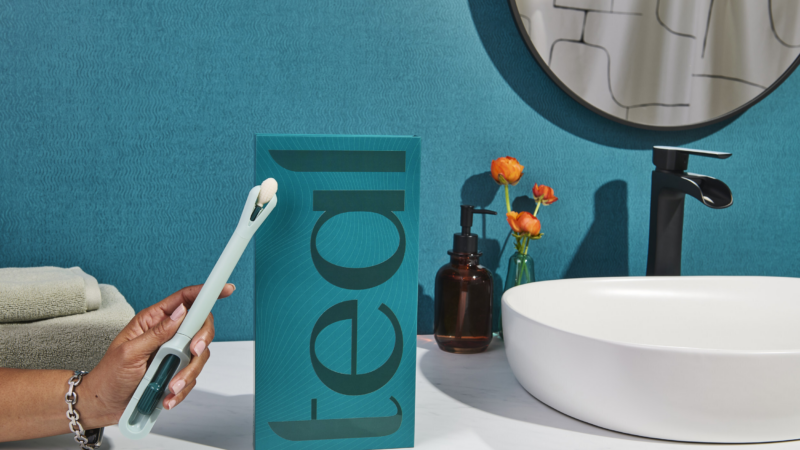The FDA approves first U.S. at-home tool as a Pap-smear alternative
The Food and Drug administration has approved the U.S.’s first at-home alternative to the Pap smear, a procedure generations of women have dreaded and often found painful.
The new device by Teal Health will offer a “much preferred experience,” the company said in its announcement, and also aims to increase screening rates by making the procedure more convenient.
Traditionally, gynecologists have inserted a cold metal speculum deep into a woman’s vagina to scrape cells from the cervix.
The Teal Wand — “built with empathy,” the company said — uses a swab to collect a vaginal sample. Women will then mail the sample to a lab that will screen for HPV (human papillomavirus), the virus that causes nearly all cervical cancers. A growing body of research has found HPV testing to be highly accurate.
The FDA approval Friday follows a U.S.-based study that found at-home screening was just as effective as that done in a doctor’s office. The study also found women overwhelmingly preferred self–screening at home, and said they’d be more likely to stay up to date with cervical cancer screenings that way.
Every year, about 13,000 cases of cervical cancer are diagnosed, and more than 4,000 women die from the disease. Rates are down dramatically since Dr. Georgios Papanicolaou published a 1943 paper on how to use the Pap smear for screening, and it then became common.
But about a quarter of women in the U.S. are behind on such screenings, and medical experts say reducing that is key to the ultimate goal of eliminating cervical cancer. There’s also a racial gap, with Black and Native American women far more likely to die from cervical cancer than white women. The HPV vaccine for teen and preteen girls, introduced in 2007, has also led to a global push to tackle the disease that way.
At-home cervical cancer screenings are already available in several other countries, including Australia and Sweden.
Teal Health says its self-testing device will be available starting next month, in California first and then expanding. It will be by prescription, through a telehealth service, for women 25-65 years old who are “at average risk.” The company says it’s working with insurance companies to provide coverage.
Pentagon puts Scouts ‘on notice’ over DEI and girl-centered policies
After threatening to sever ties with the organization formerly known as the Boy Scouts, Defense Secretary Hegseth announced a 6-month reprieve
President Trump bans Anthropic from use in government systems
Trump called the AI lab a "RADICAL LEFT, WOKE COMPANY" in a social media post. The Pentagon also ordered all military contractors to stop doing business with Anthropic.
HUD proposes time limits and work requirements for rental aid
The rule would allow housing agencies and landlords to impose such requirements "to encourage self-sufficiency." Critics say most who can work already do, but their wages are low.
Paramount and Warner Bros’ deal is about merging studios, and a whole lot more
The nearly $111 billion marriage would unite Paramount and Warner film studios, streamers and television properties — including CNN — under the control of the wealthy Ellison family.
A new film follows Paul McCartney’s 2nd act after The Beatles’ breakup
While previous documentaries captured the frenzy of Beatlemania, Man on the Run focuses on McCartney in the years between the band's breakup and John Lennon's death.
An aspiring dancer. A wealthy benefactor. And ‘Dreams’ turned to nightmare
A new psychological drama from Mexican filmmaker Michel Franco centers on the torrid affair between a wealthy San Francisco philanthropist and an undocumented immigrant who aspires to be a dancer.







